My former house may have been the house in which above mentioned creepy unsolved murder occurred. Of course, I don't want it to be the actual house because learning that would make me uncomfortable. I don't want to live in a place where a homicide occurred and I wouldn't want to know about it if I did. Who would ever want to live in a house where someone was killed? Well, surprisingly, some people would and the number of them is actually increasing. There's a simple answer why this is, too: It's cheaper.
Whether you avoid such houses no matter the cost, or actually prefer the stigmatized house more than a normal one because of the price, today you and I are going to explore how to find out if a property in Japan comes with a dark history and we'll also try to uncover some tips to help you to either avoid or choose such a place.
What Is Stigmatized Property?
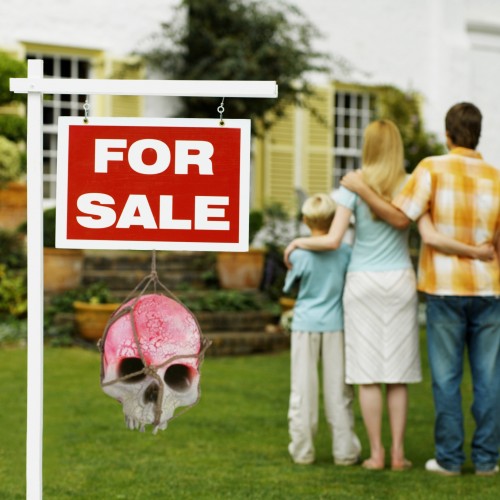
Stigmatized property is called Jiko bukken・Wake ari bukken jouhou center 事故物件・ 訳あり 物件情報センター, or in legal terms Shinriteki kashi bukken 心理的瑕疵物件 in Japanese. kashi 瑕疵 means flaw; defeat; blemish and a property with "kashi" is a place that buyers or tenants may shun for reasons that are unrelated to its physical condition or features. Such reasons include murder, murder-suicide, family suicide, individual suicide, solitary death and arson. On top of that, it includes things like whether or not a gangster organization (yakuza) used the space, or if a religious cult exists nearby.
The Law And A Loophole
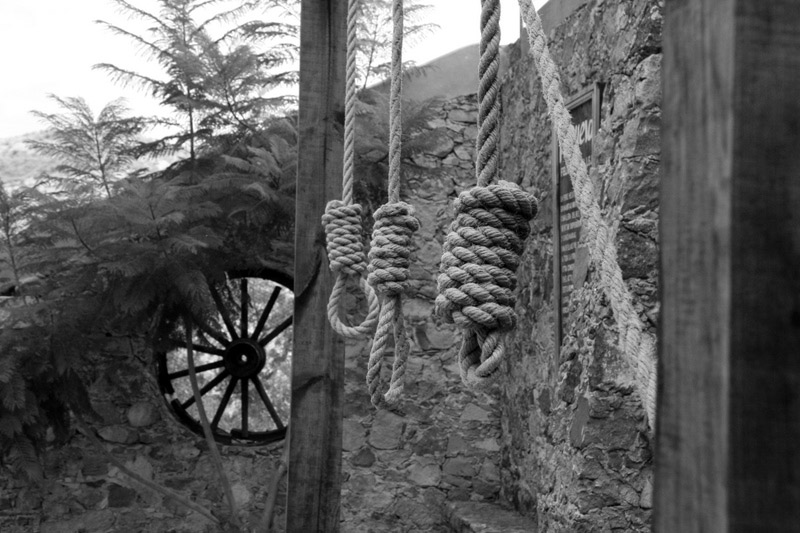
Although both the civil law of Japan, as well as the building lots and building transactions business law (what a mouthful) dictates that realtors to inform any prospective tenants of any "stigma" involving the previous tenant or property, the law doesn't actually state what specifically that stigma is. Therefore, the realtors themselves have to decide what exactly is worth informing prospective tenants about by referring to precedents. In fact, it seems to be pretty difficult for realtors to judge because there are various precedents which could change depending on the situation.
For example, one precedent indicates that the prospective tenant needs to be informed for at least two years following some form of stigma, whereas the other said that it has to be 20 years, though the average accepted duration is typically between 5 to 10 years. There was also a precedent stating that the tenant has to be informed of such incidents 10 years after it happened unless a different tenant has already lived there.
This precedent created a loophole: the requirement of informing tenants of a stigma applies only to the most recent tenant and once the place has been rented a second time, whatever occurred prior to that need no longer be reported. Because of this, many people just changed the registered tenant's name to their family member's, or even hired someone to temporarily live there. This rampant, immoral method has actually caused a lot of hassle in the courts. For this reason, there is now a consensus among real estate companies to inform the prospective tenant of the stigma if the incident happened within the past 10 years or if the prospective tenant is the third registered tenant after the incident, though, again, it is still left to the realtor's or owner's discretion.
First, Simply Ask the Realtor

So now let's suppose you're in the market for a new apartment, and you spot one that's pretty good. The location is favorable, the structure is very durable, and the unit has plenty of storage space and gets a lot of sunshine. It's also in close proximity to a train station and convenient shopping places, but the rent seems too good to be true. Tintintin~♪ Bingo♪
If that's the case, you are likely to find that the apartment may have experienced an "unfortunate incident." In general, rent for stigmatized properties is usually listed at over 20% less than normal. Even if it is listed at the normal rate, you're likely to be able to negotiate the price down by 20% or more, so long as you know that the stigma exists.
So, say you do find a place that is priced at the normal market value. How can you figure out about the stigma then? One thing that may set off some warning bells is if it was renovated. The place looks brand spankin' new and it's only this price? Or, even more suspicious, what if only part of the location is renovated. The flooring in this particular room is so beautiful but the walls are kind of old and shabby looking… or, why is the bathtub so new and high-tech when the toilet's oshiri button doesn't even move back and forth?
These are the kinds of things to look for, so if you notice any of these things or anything else that seems fishy, you can simply ask the realtor if this is a place with an undesirable history. As long as the realtor is a good person and follows the consensus, you will be informed, especially when you directly ask. You may also want to check if the neighboring units are occupied too, because it's common for people to move away if there was an event or issue at the unit you're looking at.
So, whether you're trying to avoid a stigmatized unit or if you're trying to find one so you can negotiate the price down, those are the things you need to do.
What To Ask?

Let's say you do ask and they say "Nope, not stigmatized." You know that look in their eyes. They seem uncomfortable and are making weird movements, just like a lier would! Something is wrong here…
One way to get past this is to ask for more details. Here are some questions that will help you to figure out if it is actually that type of place:
- How long did the previous tenant live here and how long has the unit been vacant (exactly when did they move out)?
- Did the tenant move out within two years of moving in?
- Did they move when it wasn't normal moving season, such as March? Why? If the realtor hesitates to answer or tells you that he/she doesn't know the reason, you should keep being skeptical. With enough digging, you might make the person slip up and tell you something they didn't intend to, or you may just catch them in a lie.
Furthermore, if you are enthusiastically recommended a unit with phrases that sound as though the person is rushing to sell the place, such as "I've never seen such a good place", "I'd like to live here if I were you", or "It's so rare that such a place is available at this price", then you may want to think twice. Maybe it is too good to be true. Oh and by the way, if you are seeking a stigmatized property and don't mind being honest about that with the realtor, feel free to reveal that information right where you stand. In that case, no one would lie. They're probably having trouble selling the place and that might come at a relief to them. That being said, maybe you could say that out front and then catch them at their lie.
Second, Go To Well-Disclosures Real Estate Site
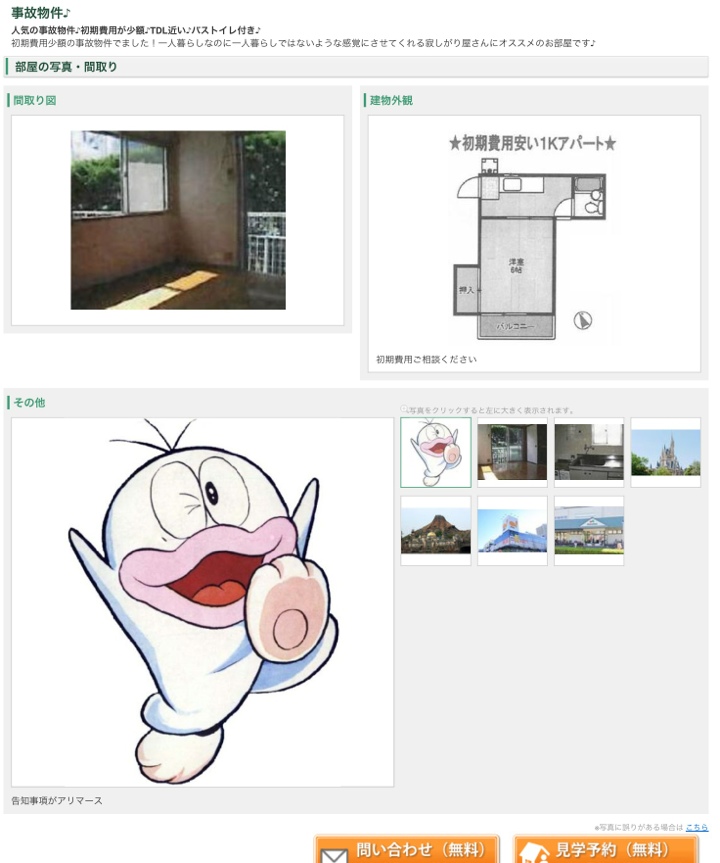
If the situation arises when you've asked the realtor your questions, but didn't get enough confidence boosting information and thus are still skeptical, the next thing you should do is to check out the real estate sites, such as SUUMO, which discloses stigmatized information.
As for SUUMO, not only are they unafraid to reveal stigmatized property but they've also even attempted a new and unique approach to offloading stigmatized property. In a very positive way, they try to convince the potential renter that it's actually a great thing to live in a place where someone violently died! The following is what they wrote for the unit.
- 事故物件♪ 人気の事故物件♪初期費用が少額♪TDL近い♪バストイレ付き♪ー初期費用の少ない事故物件でました!一人暮らしなのに一人暮らしではないような感覚にさせてくれる寂しがり屋さんにオススメのお部屋です♪
- Stigmatized Property♪ Popular stigmatized property♪ Low initial cost♪ Near Tokyo Disneyland♪ Private bath and toilet♪ It's a stigmatized property, which means low initial cost! You'll be living alone, but you'll never really feel like it. This room is perfect for lonely singles♪
It came with pictures of not just the apartment and surrounding area, but also of a cute, friendly ghost character Obake-no-Q-taro お 化けのQ 太郎, which means 'Ghost Q-taro' and was made by the creators of Doraemon ドラえもん, Fujiko Fujio 藤子不二雄.
The price was 23,000yen(US$230) per month with no deposits for the 107 square-foot unit with a kitchen, balcony, bathroom, and toilet. It seems that this unique idea succeeded in its purpose and the ad was taken off shortly after.
事故物件・訳あり物件情報センター, or The Stigmatized Property Information Center, is another website on which you can find these properties, as well. Although they only cover the Tokyo, Kanagawa, Saitama, and Chiba areas, they actually focus solely on stigmatized property for their business, whereas SUUMO only partly deals with such properties. So if you are looking for such a place, you can search for an 'only stigmatized property' realtor.
Third, Check Out Oshima Teru

Oshima Teru CAVEAT EMPTOR is an up and coming website operated by Manabu Oshima since September 2005. The site's main purpose is to map out every property where unnatural deaths occurred and to show you the 'stigmatized properties' with burn marks from fires. Originally, it focused on the greater Tokyo area, but now they have extended into a near worldwide coverage including North America and Europe. They glean data from police reports and the media, visit the actual places or the courts to learn the correct addresses, and use Google maps to indicate where all the "stigmatized properties" around the world are. This site is also for free so to all of you are thinking of moving I'd recommend searching for a stigmatized property on Oshima Teru to make a stigmatized property your own.
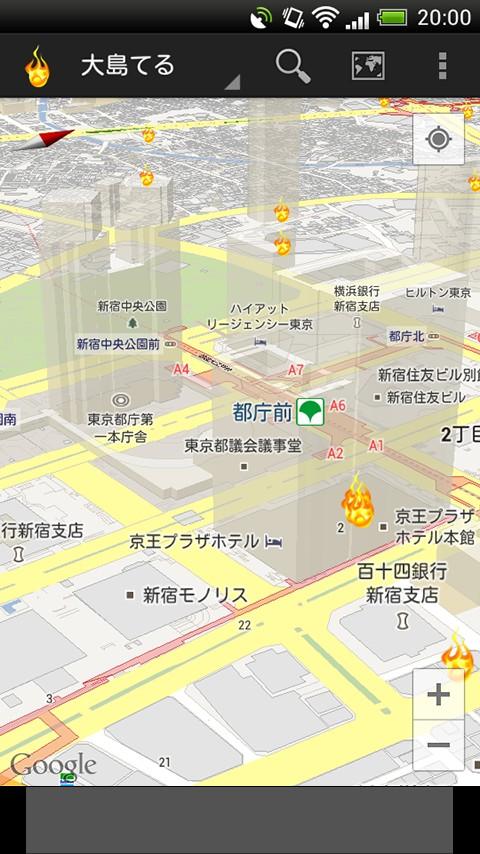
However, despite the worldwide coverage of Oshima Teru, most places are limited to major cities. So, what can you do now? Unfortunately, your last resort may be to walk around and ask the neighbors by yourself: "This unit is very cheap compared to the average price in this area, so is it only this unit or is everyone in this apartment building paying the same price?" Although it may be a difficult, time-consuming way, you may be able to gain fruitful information not only regarding stigmatized properties, but also about your potential landlord's or neighbors' personalities.
Finally Make Your Own Decision
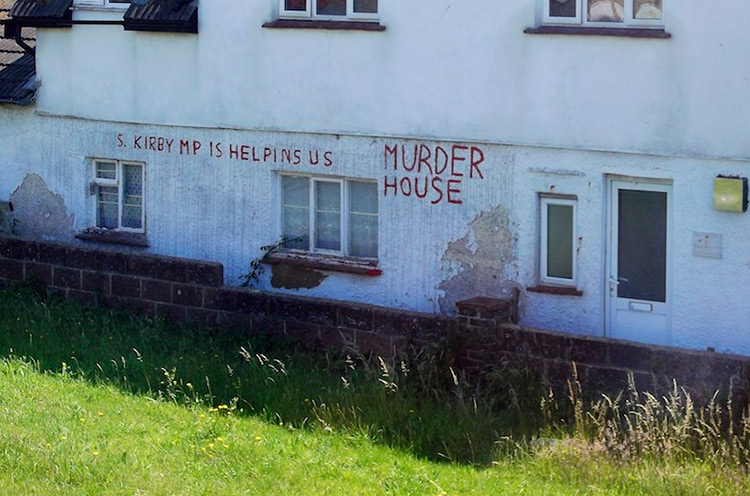
Though I listed the ways to figure out if the unit is stigmatized, most likely you will just be informed by the realtor because they will be afraid of being sued for hiding it from you (should you move in and find out later). Some real estate companies actually went bankrupt because of having a bad reputation from hiding such things.
Interested in buying or renting a stigmatized home? Go ahead! Although, there are also some cases where tenants complained of "residual smells" being left behind by decomposing corpses, or tenants who developed insomnia due to the psychological pressure of knowing what occurred in their unit, so you should also consider those things before making a decision. But, if you value a good deal over trivial things like your psychological health, I won't hold you up any longer.
Me? As I told you earlier, there is no way that I could move into one of those places or learn that I used to live in one. However, my curiosity was far too great and I actually felt compelled to find out whether or not I unknowingly lived in stigmatized house. Unfortunately, or perhaps luckily, I couldn't find any verifiable proof that the incident I wrote about in a previous article actually occurred there, perhaps because it was such a old case. Personally, I'm glad that I didn't find anything out. I guess it will just have to remain an eerie possibility for my mind to nibble on.
So what about you? Think you could live in a stigmatized property? Where would you draw the line? Is suicide okay but not murder? Or perhaps the line is between murder suicide and regular murder? Let me know your opinion and where you stand. Oh, and if you've lived in a stigmatized property, tell me all about it, I want to know!
